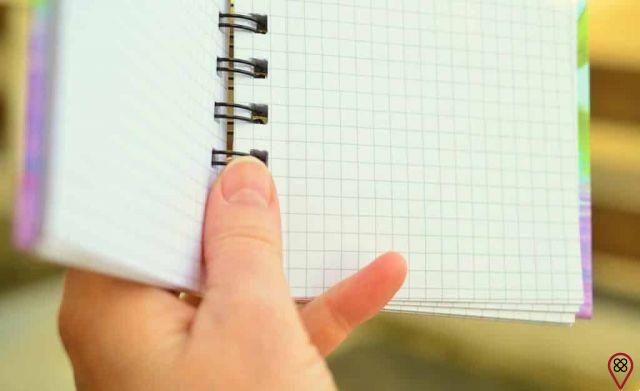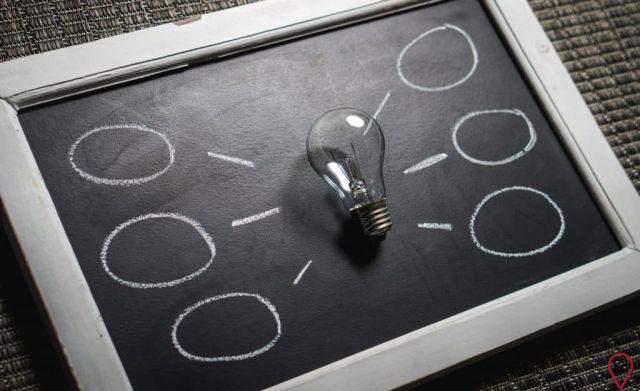New habits have been inserted into our routine in recent times. Many people had to adapt to a new reality and started working in the home office model, while school and university classes became remote. For some, moving less and spending more time indoors was synonymous with a better quality of life, but this is certainly not a reality that pleases everyone.
Not all people find it easy to focus on certain types of activity while at home. Far from environments such as study rooms or libraries, where silence reigns and there is not much space for distractions, we encountered some obstacles.
Noise, notifications on social media or the family routine itself can end up disturbing concentration when studying, making learning more difficult. However, all is not lost! We can, for example, use strategies such as meditation to help us in our studies.
Meditation helps in concentration and absorption of the material studied, and the best, it can be performed anytime and anywhere! Want to know more? Check out some benefits of meditation for students and some tips on how to incorporate the practice into your life!
Why meditate?
The student routine in itself is already quite distressing, as it is common for students to feel pressured in relation to their professional future and live with the fear of not achieving their goals.
And this is where meditation becomes an excellent option! Meditation brings several benefits that help concentration and make learning more productive. People who practice meditation are more focused and better able to face adverse situations that, consequently, hinder learning and impair quality of life.
Contrary to what many think, meditation is not associated with any specific religion, although it is part of certain beliefs. In fact, meditation is a technique that unites breathing, concentration and emptying the mind.

As a result, we have greater control over stress and emotions, as well as exercising areas of our brain linked to consciousness, discipline, learning and memory.
Check out seven benefits that meditation can provide students below!
1 – Anxiety control
Anxiety is an inherent feeling in people, and it can be felt to a greater or lesser degree, depending on the phase we are going through. It can be students' enemy number one, not only hindering concentration when reading or paying attention in class, but also causing difficulty sleeping, and we know how critical a good night's sleep is to learning. By meditating, we connect to the present moment and can reason better! So keeping a calm mind is super important for students, and developing this skill is not as difficult as you might think. Even restless people who have never meditated can start the practice on their own, through simple exercises. It only takes ten minutes of meditation a day to notice an improvement in stress levels and an increase in the ability to relax in moments of nervousness, and this is true not only during studies, but also when performing important tests and exams.
2- Improved concentration
Another benefit of meditation is a significant improvement in attention. During meditation we can better understand our senses and highlight those that really matter. Concentration is the key to learning, as there is nothing more discouraging than getting distracted and losing focus, needing to resume activity all the time. When we meditate, we reduce the activity of the parietal lobe, the part of the brain that processes sensory stimuli. In this way, we are able to temporarily ignore external stimuli. In short, meditation works as a training of the mind, where we can turn off everything that can distract us and focus on what is really relevant. The more the student practices meditation, the more he will be able to improve his concentration, whether reading a book or solving a physics question.
3- Greater discipline
Meditation is strictly linked to overcoming limits and mastering the body and mind. It may seem more difficult at first, but it's all about training. Ideally, meditation is part of your routine, just like drinking coffee and brushing your teeth. Over time, meditation will bring benefits not only one-off, but also in your life in general. In other words, with practice we become more organized individuals, we will leave less things to solve later, and studying will be a more pleasant and efficient activity.

4- Greater self-knowledge
Meditating is looking inside yourself, it's knowing yourself fully. Meditation helps in the process of self-knowledge, and it is up to each of us to make the right reflections and understand what really motivates us. Meditation is an important tool for you to review your goals, set your priorities and be able to focus on what really matters. Understanding where you want to go will be essential to understand the path you are following and continue, taking one step at a time, towards your goals!
Self-knowledge also brings several other benefits. From the moment we learn to manage stress better, we understand that we are doing our best as far as possible, so we start to be kinder to ourselves and understand that each person's time is unique.
5- Body awareness
Meditation is a practice that unites physical and emotional well-being. Not only that, she also advocates that body and mind must be in perfect balance, as one directly affects the other. It is already known that meditation has the power to relieve chronic pain and symptoms such as anxiety, very common in the lives of students at different stages of life. Of course, back pain or frequent migraines, for example, should be treated with professional follow-up. But research shows a significant improvement in the intensity of these manifestations in groups that practice meditation regularly. And nothing worse than studying feeling any kind of pain, right?
6- Increased creativity
Anyone who still thinks that studying is synonymous with decorating is wrong! For learning to be real, the ability to create is very important. Being able to make connections and think beyond the obvious are essential for any area of knowledge. Creativity is related to how we manage to articulate and organize our knowledge. It can be an excellent ally both when solving a math puzzle and when executing an essay in the entrance exam, for example. Of course, creativity is developed from several factors throughout life, however meditation helps to improve creativity, as well as helping students to be more optimistic and confident.

7- Greater sense of well-being
Studying makes us dream, drives us far! Studies are part of our life when we are planning our future, but they shouldn't be the only important thing in a person's routine. As important as the hours dedicated to studies, are the moments of self-care. Therefore, it is important to alternate the study routine with moments of leisure, physical activities and relaxation. Meditation, therefore, also plays a fundamental role in relieving the tension that this phase brings, contributing to the strengthening of self-confidence and improving the students' routine as a whole.
How to do a meditation to study better?
Learning should be enjoyable and not cause students even more anxiety. The recurring practice of meditation contributes to an improvement in physical and emotional well-being. The sooner you start, the greater the benefits!
Furthermore, it is very difficult for someone to really dislike meditation, as there are so many styles and techniques of meditation out there. Today we can find this information on the internet and try out some types until we identify the one we adapt best to.
Guided meditation videos or apps that help with this process are just a few examples of how you can learn to meditate so you can study better. See these and other tips below:
Inspire, expire
If you have never meditated and are not sure how to start practicing, start with breathing exercises. First, book a suitable place and set a time of day that is quieter. Ideally, it should be in the morning, before starting your daily activities. So, make yourself comfortable, preferably on the floor and cross-legged. Then close your eyes and notice your breathing, remembering to breathe only through your nose. Inhale and feel the air filling your lungs, then exhale slowly. Repeat these movements until your mind is free of thoughts. Don't cover yourself so much at first! If you can't stay still for a long time, go to your limit and gradually increase the time of the exercise. A good tip to help focus is to put a sound that you like in the background.
Use technology to your advantage
There are several meditation apps available in free or paid versions, as well as Spotify playlists or YouTube videos with guided meditations. Apps like Sattva, Zen, Medite.se and Aura are quite popular and are available for Android and iOS. As for playlists, search for “guided meditation” and find the one that best suits your personality! These options are interesting for those who still don't have a lot of discipline to meditate daily and to guide beginners, making meditation simpler and more enjoyable.
You may also like
- Try Feng Shui Tips to Improve Your Study Routine
- Understand how meditation in the workplace works
- Analyze how homeschooling works in times of a pandemic
- Discover the best guided meditation sites
- How to overcome difficulties in studying and recording information?
Find the ideal practice for you
There are different practices and you should choose the one that best suits your lifestyle. Generally speaking, there are two broad categories of meditation: active meditation and passive meditation. The first is performed during daily activities, while the person exercises or moves from one place to another. Passive meditation is more traditional, it should be performed during a specific time of day with the person sitting and eyes closed, requiring more focus and tranquility. As for the techniques, the main ones are: mindfulness, which maintains awareness in the present moment with no space to think about the past or the future; transcendental, which works on the levels of consciousness, culminating in deep relaxation of the body and mind; and zazen, a derivation of Zen Buddhism where the focus is on body and emotional awareness. The ideal is to research more about each type of meditation, test some of them and follow the one you like the most!
Incorporate meditation into your routine
For all the benefits to be realized, meditation must be part of the routine. It takes twenty-one days of a new practice for the brain to understand this habit as a new behavior and accept it as something permanent. In short, although occasional meditation before studies provides momentary peace, only continuous and consistent practice will bring all the benefits of meditation into students' lives and thus facilitate learning!
When you start to feel stray thoughts or when you can't focus on the content, take a break. Take a few minutes to meditate and calm your mind. Meditation will contribute to a greater performance and you will be able to better understand what you are studying.
Now that you already know how meditation can help your learning, put these tips into practice and good studies!

























